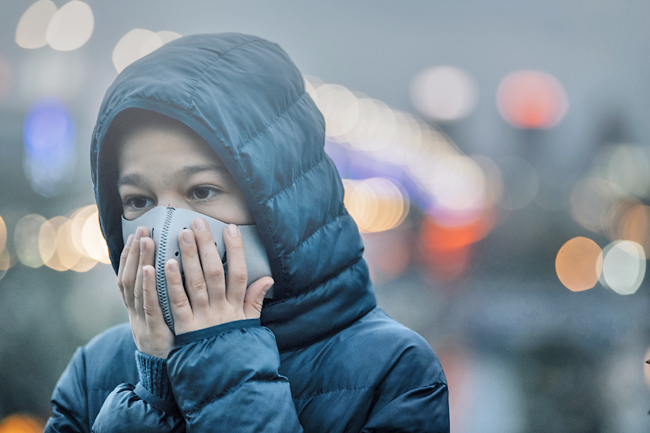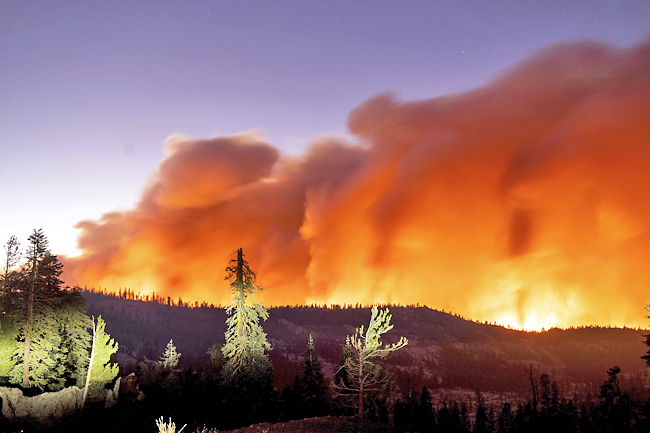AFP – Declining air quality is causing anxiety within communities, particularly among parents, who often find themselves uncertain about the best measures to safeguard their children’s well-being, as indicated by a recent United States (US) survey.
A range of suggestions, from shutting doors and windows to utilising respirators and limiting outdoor exertion, are proposed to mitigate the impact of outdoor air pollution. Yet, with the frequency of ambient air pollution on the rise, the question remains: are these measures sufficient?
A new survey conducted by the University of Michigan, CS Mott Children’s Hospital in the US, among 2,044 parents of children aged 18 and under, highlighted their concern about the deterioration in air quality and the impact this can have on children’s health.
Nearly three-quarters of parents surveyed (73 per cent) say they are concerned about the effects of air quality problems on their children’s health, and consider that poor air quality is related to forest fires (81 per cent), heat waves (42 per cent) and seasonal changes (34 per cent).
Only 14 per cent and 11 per cent of respondents believe that high ozone levels and industrial pollution, respectively, are responsible for poor air quality.


When faced with the problem, parents say they take the appropriate measures – and those within their reach – to protect the most vulnerable, such as keeping windows closed (69 per cent), limiting time spent outdoors (68 per cent), avoiding strenuous outdoor activities (47 per cent), or asking children to wear a mask (11 per cent).
But more than one in 10 parents (14 per cent) also claim to have taken no action at all, appearing helpless in the face of such situations.
“Our report suggests poor air quality is a common issue for families. Local news and weather reports may help parents gauge their community’s air quality, but many seem unsure about how to protect their child when air quality worsens,” said paediatrician Susan Woolford at CSMott Children’s Hospital and co-director of the National Poll on Children’s Health, quoted in a news release.
“Children’s organs are still developing, making them more susceptible to health risks from exposure to polluted air caused by wildfire smoke and other pollutants. This makes it essential to take precautions to protect their well-being when the air is unhealthy.”
MOVING RECESS AND PHYSICAL EDUCATION INDOORS?
In their search for solutions to safeguard the health of their children and teenagers, parents might adapt in relation to weather reports, while also taking heed of the measures taken – or not taken – at school.
In this respect, only a fifth of the panel (21 per cent) claim to know that their child’s school has a policy defining the precautions to be taken in the event of unhealthy levels of air pollution.
On the other hand, more than six in 10 parents (61 per cent) did not know if there is a school policy in place, which makes them all the more concerned in the event of air pollution. Asked what action schools should take in such circumstances, most parents (74 per cent) feel that recess and physical education should be moved indoors, or that sport and other outdoor activities should be cancelled altogether (66 per cent).
A smaller proportion (45 per cent) believe that parents should be able to choose whether or not to let their children take part in outdoor sports or physical activities, while 27 per cent of those polled support the idea of encouraging children to wear masks outdoors at school.
It should be noted that eight per cent of parents do not support any action being taken at school.
“Being outdoors is generally good for children’s physical and mental health but parents must also consider the risks of exposure to pollution.
“When air quality problems are expected to be temporary, moving activities indoors or planning outdoor events for early in the day when air quality tends to be better may be warranted to prevent high levels of exposure,” said Woolford.
But the paediatrician also suggests that politicians should implement broader preventive measures at local and national level, such as keeping heavy goods vehicles away from schools, or installing filters to improve air quality in schools and nurseries.
“Policymakers should consider the impact on babies and young children, particularly of long-term sources of pollution from sources such as factories and refineries,” she said. In 2022, the World Health Organization (WHO) stated that “outdoor air pollution is a major environmental health problem affecting everyone in low-, middle-, and high-income countries.”
According to figures provided by the health authority, no less than 99 per cent of the world’s population was “living in places where the WHO air quality guidelines levels were not met” in 2019 – a situation associated with over four million premature deaths a year, largely due to cardiovascular and respiratory diseases, and cancers.






